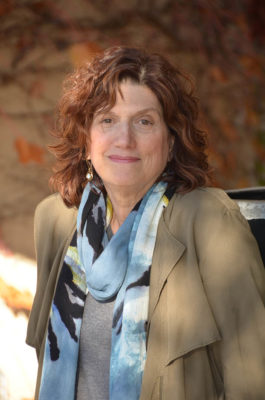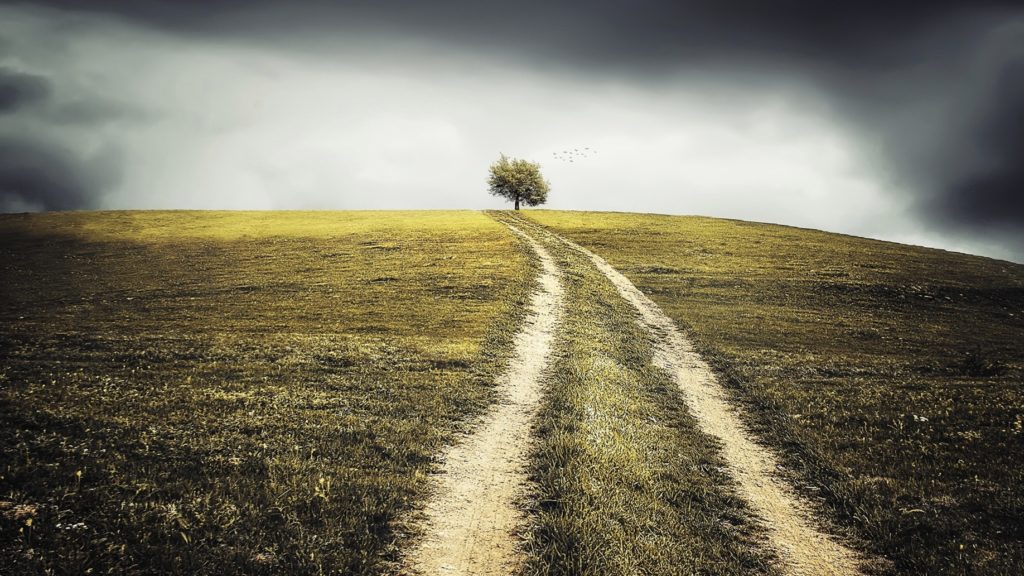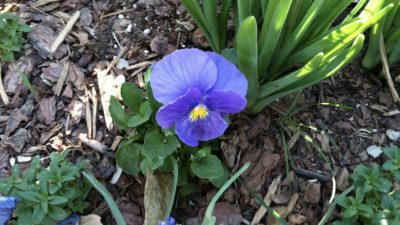On Writing Memoir:
an interview with Connie Josefs
Interview by Deborah Crooks, Alameda-based musician and writer – March, 2018.
 I’m talking with Connie Josefs. She’s a writer, teacher and memoir coach who divides her time between the Bay Area and Northern New Mexico. Connie, when did you start teaching memoir?
I’m talking with Connie Josefs. She’s a writer, teacher and memoir coach who divides her time between the Bay Area and Northern New Mexico. Connie, when did you start teaching memoir?
I started teaching memoir more than 25 years ago. Before that, I joined a writing class that encouraged writers to explore their lives in writing, but it was a little more psychologically oriented than I wanted. So eventually I started a class where people could explore life stories, but with a clearer focus on writing rather than on personal psychology.
So you come from more of a literary orientation, not psychology but transformational literature?
I think the process of writing is transformational, memoir writing in particular. We start out with stories we think we know, and as we write, we discover things that surprise us. The story expands and our perspective begins to shift. It’s hard to write about your life without having your point of view changed in some way.
Would you say that having that experience inspired you to start teaching?
The more I wrote, the more I became focused on craft. Learning craft makes us better writers, but it also deepens our awareness of what we’re writing about. It’s a way in. Often when you take writing workshops, the focus is on either craft or personal growth. I wanted to create an environment that brought the two together, that encouraged a synthesis of craft and self-reflection.
Can you give us an example of how that has happened with your teaching?
Writing scene is a good example. Most people come to memoir because they have a life story they want to tell, and they begin by doing exactly that – by telling – by writing about their story. Scene brings the writer, and ultimately the reader, into the moment-to-moment experience of what’s happening. To write scene, a memoir writer re-enters life experience with newfound curiosity, with all of their senses. The story becomes a living, breathing thing.
Many people say that writing memoir is therapeutic. Have you found that to be true?
Any deepening of awareness is going to affect us personally and emotionally, and memoir writing is no exception. Writing clients sometimes say that memoir writing is like therapy, and I remind them that while it may be therapeutic, it’s not therapy. I’ve worked with writers who’ve explored very sensitive issues – childhood trauma, or marginalization by race, gender or ethnicity, or living through overwhelming historical circumstances like the Civil Rights Movement or the Holocaust. Writing about experiences like these can be destabilizing, and in some instances I encourage writers to seek additional emotional support. I’m there to support the writer and the writing, but sometimes we need more if we are to take good care of ourselves. It’s an important distinction.
Can you give me an example of how you start a memoir workshop? What’s the first thing you do when you start the day?
We often start with freewrites. For anyone who doesn’t know what that is, it’s generally a timed writing. You set aside 10-20 minutes, use a writing prompt, and you just go. It’s like Allen Ginsberg’s “first thought, best thought.” The process is immediate, it short circuits the part of us that overthinks and it bypasses the critical voices gathering on the periphery. It’s a way of diving into the moment, of accessing stories without second-guessing ourselves.

Sometimes that’s where I get stopped, where it gets hard. You’ve got your new freewrite and you’re kind of excited and jazzed, and then you need to make it better. How do you work with people after they’ve got their idea?
It varies from person to person. I should probably back up here a bit and say that I don’t work in a very formulaic way. I don’t have a set “how to” approach to writing, so the answer to that question is going to be different for each writer. Some writers gravitate towards action and are in a hurry to get on with the story. I would encourage that writer to slow down and focus on details of character and setting. What does the place look like? Smell like? What season is it? How does the character feel in their skin? Other writers get lost in description and need to focus on forward movement. To do that, you usually need to go more deeply into character, which of course is central to memoir, to all literature really. What does the character want? What do they long for? What do they lack? Character questions are key to moving a story forward from the inside.
Where do you find that aspiring memoir writers get stuck?
That’s a great question, and again, it’s hard to give a general answer because it’s different for everyone. As writers, we all have strengths, and those strengths can also be liabilities. For example, if I’m a poetic writer and I’m skilled at writing description, it might be harder for me to write action or dialogue. I think one of the reasons why we get stuck is that we rely on our strengths and want to avoid the things that are difficult. That’s one of the advantages of working with a writing coach; they can guide you towards aspects of writing that don’t come naturally. That’s how we grow as writers.
The other place where I see writers getting stuck has to do with expectations. Writing is not a short term commitment. It requires dedication and the willingness to immerse yourself in a project and be patient; to try one thing, and then try something else. There are a lot of books out there that say “this is how to write your memoir in six weeks,” or “follow these ten easy steps and you’ll have a novel in a month.” When it doesn’t work out that way, we think there’s something wrong, that we’ve made some big mistake or we’re not good writers. This can be very misleading. Writing is not a sprint, it’s a marathon.
Speaking of marathons, you work with writers of all ages and abilities, but have gravitated toward specializing in working with writers over 50. Can you talk more about that?
I began working with adults over 50 after teaching younger writers for many years. When we’re in our 20s, 30s and 40s, we’re usually focused on outer goals. We’re thinking about careers, about finding a partner, maybe starting a family, about forging an identity in the world. Then around 50 or 60, a subtle change begins to happen. There’s a reckoning that takes place. We’ve accumulated all this life experience and we want to understand what it’s been about. The quest is more about meaning. Memoir is an ideal medium in which to explore this.
One thing I love about working with writers over 50 is the sense of community that develops. A deep level of sharing takes place in memoir workshops. People are writing about significant moments in their lives – it’s the opposite of cocktail party conversation. A sense of camaraderie grows over time and meaningful bonds are forged. It’s pure joy to watch this happen.

What can writers hope to get out of your workshops? It would depend on the workshop of course, but can you give me an idea?
It does depend on the workshop, but one thing I hope writers get from my memoir workshops in particular, is how theme and memoir are fundamentally linked. When you’re writing memoir, you sift through events and life experiences. Theme is the connective tissue that holds it all together. Down the road, this often becomes the organizing principle for a collection of pieces or for a longer work. It can be challenging for a writer to uncover themes on their own. They’ve lived the events – it’s almost like they’re too close. By sharing stories in a workshop or with a writing coach, writers gain a deeper sense of what they’re writing about. In memoir writing, that’s like gold.
You do a lot of work as a writing coach. Can you talk about that a bit?
As writers, one of the hardest things is to see our own work clearly. We’re always wondering if our ideas and our vision have made it to the page – and if not, where the problems lie. It can be invaluable to have a skilled reader look at your writing and reflect back to you what’s working and what isn’t. Someone who sees things you’re not seeing and helps you get closer to what you want to create. Because in the writing process – we’re always adjusting our course. You know, “fail, fail again, fail better.” It’s so tricky to stay with the ups and downs and not lose heart, to stay inspired and keep moving forward. As a writing coach, my goal is to stay open and curious, to meet each writer where they are. Coaching is a creative partnership.
I noticed that you have a background in film and I’m wondering how that might inform how you approach the writing process.
My initial training was in dramatic writing for the screen, and I spent my early professional years in writing and development for film and television. Sometimes I feel like I’ve absorbed dramatic structure at a cellular level. This is enormously helpful when working with writers to structure a longer work or map out a story’s forward movement. Unlike the traditional outline, dramatic structure is rooted in character and works from the inside out.
I tend to think cinematically. I’m instinctively aware of how a story unfolds in time and place. There’s a wonderful essay by Robert Olen Butler called “Cinema of the Mind,” where he talks about literature as a kind of cinema of inner consciousness, where characters, action and setting are evoked like images in a dream. I’m very aware of this when I work with writers, and in my own work as well.
Another thing I wanted to ask is if you have any other practices that inform or help your writing?
I did a lot of meditation in my 20s and 30s. In those days, we we were in a big hurry to get enlightened (laughs). In the last five or six years I’ve returned to meditation, which is now more of a Buddhist, mindfulness-based practice.
Writing can be a bit of an emotional roller coaster. In this culture, we’re primed to succeed and there’s not a lot of room for failure, and as I was saying before, failure is so much a part of the creative process. Having a meditation practice helps us learn to live with uncertainty. We’re training our mind to stay present to whatever’s happening in the moment. I can’t think of a better approach to writing. It’s like that famous Doctorow quote about how writing is like driving a car at night… “You can see only as far as your headlights, but you can make the whole trip that way.”

We’ve talked a lot about your coaching and how you work with writers. Can you say a bit about your own writing? What you’re working on?
I have a couple of projects I’m working on. I like to have two things I can shift back and forth on – usually one longer form project and a shorter one. I’m working on a novel that takes place in New Orleans after the Civil War. I’d put it down for awhile and have recently come back to it. The other project is more memoir-based. The working title is “Broken Narrative.” The idea is that there are times when we go through experiences in life when our trajectory, our narrative, gets broken for one reason or another, and the actual structure of how we’re living is altered. I’m exploring how narrative structure can reveal this experience.
I also have a regular writing practice that’s similar to meditation. I write every morning for 30 minutes, with no agenda. I never know what will happen. Many of my writing projects come out of this practice.
I’m curious about how you work with your remote clients. I know you have that offering as well. How does it work?
Technology has made it so easy to exchange documents and comment on work remotely. I also like to have some kind of personal contact with writers, whether it’s phone, FaceTime or Zoom. Again, different writers have different needs. For some, the immediacy of real time interaction is important. Others prefer written comments on a manuscript and questions or clarifications get dealt with in email correspondence. Or it can be a combination of both. There are such a wide range of options available, so it becomes about finding the particular form of communication that suits a writer’s personality and needs.
Can you give me a couple examples of memoirs that you like, or that you recommend to memoir writers? There are a lot of memoirs out there and I wonder if you have any favorites?
One that I like, and that I recommend often, is Let’s Take the Long Way Home, by Gail Caldwell. It’s a slim book – deceptively simple. It’s the story of a relationship between two women, the author and her friend who has died, so it’s also about grief. The writing is clear and accessible, which makes it a good book to study. There’s a wonderful memoir by Jo Ann Beard, called Boys of My Youth, that reads like a collection of short stories. I work with a lot of clients who are writing short pieces based on their lives, and this book has been instructive both in terms of how the individual stories are constructed and how they link together. I love Roxane Gay’s work, it’s raw and intelligent, and fiercely honest, both her essays and her memoir, Hunger. I’m also a long time fan of Annie Dillard. I love how her work is infused with elements of the natural world. An American Childhood is a book I recommend often. Joy Harjo’s memoir, Crazy Brave, is another one. Her range of experience extends beyond ordinary reality, and her prose reads like her poetry, immediate and precise. Heidi Julavits has an interesting memoir, called The Folded Clock, that’s written as a series of diary entries, small moments that slowly expand. And I love Patti Smith’s memoirs… her skill at evoking the personal through the particulars of time and place. I think that’s more than you asked for.
So – one last question. What do you tell someone who has decided they’re going to write a memoir of their 30 years living overseas?
I would tell them to work hard and go slow. We’ve gotten so used to multitasking, to having many things going on at once. We think more and faster means quicker, better results. Writing isn’t like that. It’s an organic process, like gardening. I mean, you wouldn’t run outside to your garden in the morning and say, “Why didn’t you grow more?” Stillness is part of the process, it’s a different rhythm. This comes up with memoir writing in particular, when we know the story ahead of time so we’re in a hurry to get there – wherever “there” is. I think impatience is the greatest enemy of the writer. Writing takes time. Like life, it’s a series of moments. When we rush through it, it’s not particularly rewarding. So maybe you spent 30 years overseas, but that experience happened one moment at a time. That’s how writing happens, one moment at a time.
